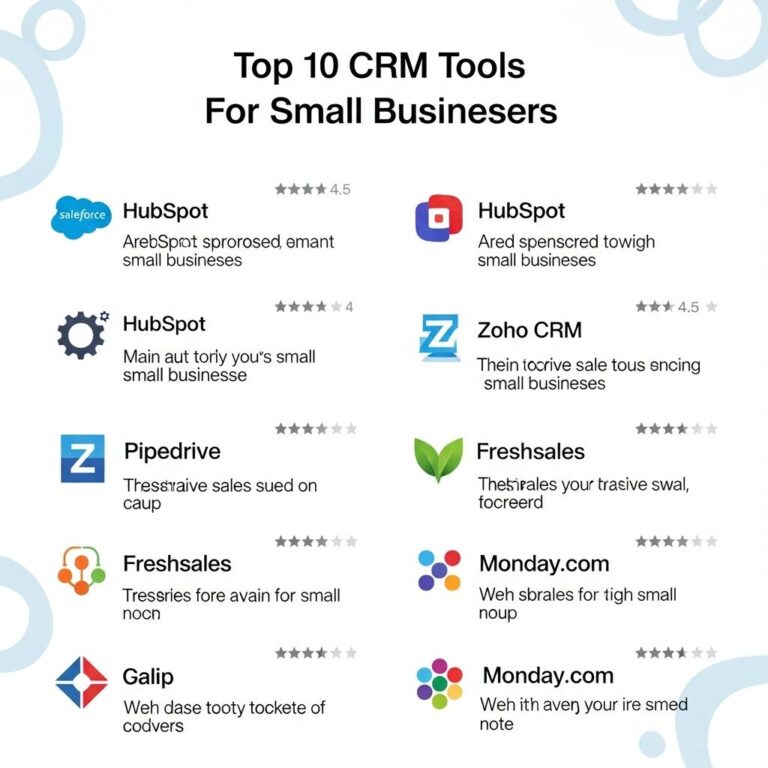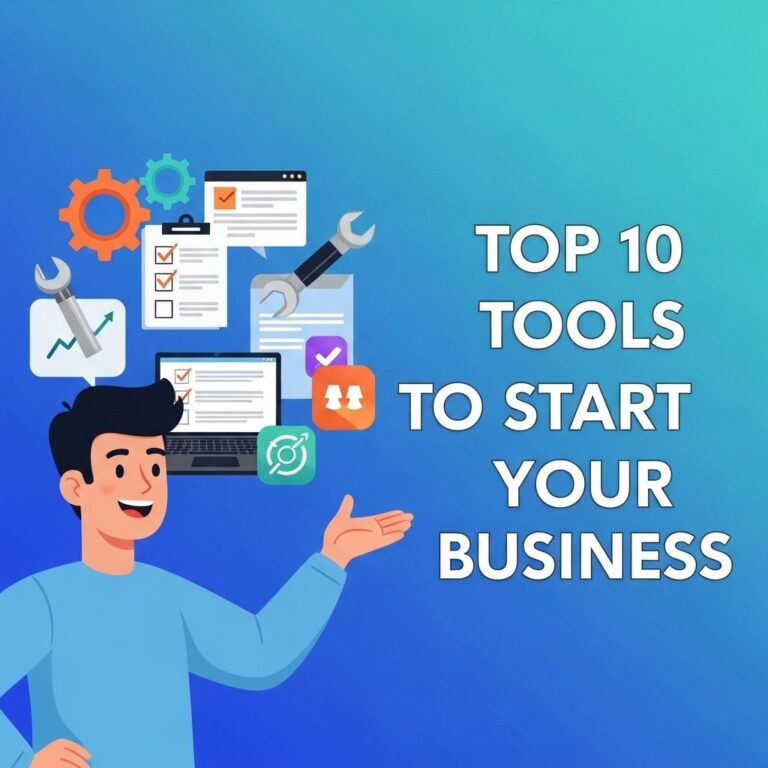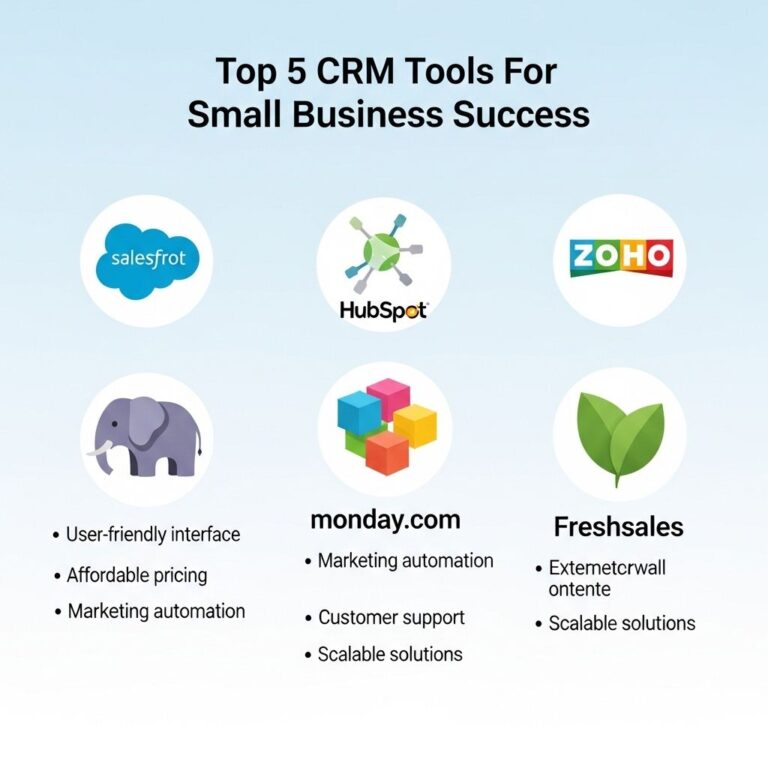In the digital age, establishing and growing an online business requires strategic planning and the right set of tools. Entrepreneurs today face a plethora of challenges ranging from attracting customers to managing finances. In this article, we will explore ten essential tools that can help streamline various aspects of online business growth, enabling entrepreneurs to focus on what matters most—scaling their operations.
Table of Contents
1. Website Builders
A strong online presence starts with a professional website. A website builder allows you to create an attractive site without needing extensive coding knowledge. Here are some popular options:
- Wix: User-friendly and offers a variety of templates.
- Squarespace: Known for its stunning designs and built-in SEO features.
- WordPress: Highly customizable and suitable for blogs, e-commerce, and portfolios.
2. E-commerce Platforms
If you’re selling products online, choosing the right e-commerce platform is crucial. These platforms facilitate inventory management, payment processing, and customer interaction. Top picks include:
- Shopify: Ideal for small businesses and scalable for large enterprises.
- BigCommerce: Offers more built-in features compared to its competitors.
- Magento: Best for larger businesses needing advanced customization.
3. Email Marketing Services
Email marketing remains one of the most effective channels for engaging customers. Here are some of the leading tools:
| Tool | Main Features | Best For |
|---|---|---|
| Mailchimp | Automation, analytics, A/B testing | Small to medium businesses |
| Constant Contact | Event management, social media integration | Businesses looking for customer support |
| SendGrid | Transactional emails, deliverability tracking | Developers and tech-oriented businesses |
4. Social Media Management Tools
Managing multiple social media accounts can be daunting. These tools help streamline your social media strategy:
- Hootsuite: Schedule posts across various platforms from one dashboard.
- Buffer: A simple tool for posting updates and analyzing social media performance.
- Sprout Social: Offers robust analytics and reporting features.
5. Customer Relationship Management (CRM) Software
A good CRM helps you manage interactions with customers and prospects. Here are some popular options:
- Salesforce: Highly customizable with vast features for larger enterprises.
- HubSpot: Offers a free tier with essential features; excellent for startups.
- Pipedrive: Focuses on sales pipeline management for small businesses.
6. Analytics Tools
Understanding your website and marketing performance is vital. These analytics tools provide insights:
- Google Analytics: Free tool providing in-depth traffic analysis and reporting.
- Hotjar: Offers heatmaps to visualize where users click on your site.
- Mixpanel: Focuses on user behavior analytics beyond page views.
7. Project Management Tools
Efficiently managing projects is essential for productivity. Here are some popular project management tools:
| Tool | Main Features | Best For |
|---|---|---|
| Trello | Kanban boards, team collaboration | Small teams and personal projects |
| Asana | Task assignments, timelines, and integrations | Medium to large teams |
| Monday.com | Highly customizable workflows and dashboards | Businesses requiring flexibility |
8. Content Creation Tools
Quality content is fundamental for attracting and retaining customers. Here are tools to enhance your content creation:
- Canva: Graphic design tool perfect for creating social media posts and marketing materials.
- Grammarly: Writing assistant that checks grammar, style, and tone.
- BuzzSumo: Helps identify top-performing content in your niche.
9. Payment Processing Solutions
Offering flexible payment options is crucial for e-commerce success. Consider these payment processors:
- PayPal: Widely recognized and trusted by consumers.
- Stripe: Strong API capabilities for developers.
- Square: Offers both online and offline payment solutions.
10. Hosting Services
Your website’s performance relies heavily on its hosting provider. Top hosting services to consider include:
| Provider | Main Features | Best For |
|---|---|---|
| Bluehost | WordPress integration, 24/7 support | Beginners and small businesses |
| SiteGround | Excellent customer service, performance optimization | Web developers and tech-savvy users |
| A2 Hosting | High-speed performance and developer-friendly | Growth-oriented businesses |
Conclusion
In order to successfully grow an online business, it’s essential to leverage the right tools across various functions—from website building to customer relationship management. By integrating these ten essential tools, entrepreneurs can simplify their processes, enhance productivity, and ultimately drive growth. It’s essential to evaluate each tool’s features against your specific business needs to maximize efficiency and effectiveness in your online endeavors.
FAQ
What are the essential tools for online business growth?
Some essential tools for online business growth include SEO tools like SEMrush, social media management platforms like Hootsuite, email marketing services like Mailchimp, and analytics tools like Google Analytics.
How can SEO tools help my online business?
SEO tools help your online business by optimizing your website for search engines, improving your visibility, and driving more organic traffic to your site.
What role does social media management play in business growth?
Social media management helps businesses engage with their audience, improve brand awareness, and drive traffic to their website through consistent and strategic content sharing.
Why is email marketing important for online businesses?
Email marketing is crucial for online businesses because it allows for direct communication with customers, promotes engagement, and can lead to higher conversion rates.
How can analytics tools benefit my online business?
Analytics tools provide valuable insights into user behavior, website performance, and marketing effectiveness, enabling businesses to make informed decisions for growth.
What is the best way to choose the right tools for my online business?
To choose the right tools for your online business, assess your specific needs, budget, and goals, and consider tools that integrate well with your existing systems.









